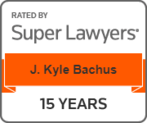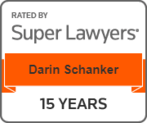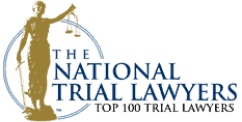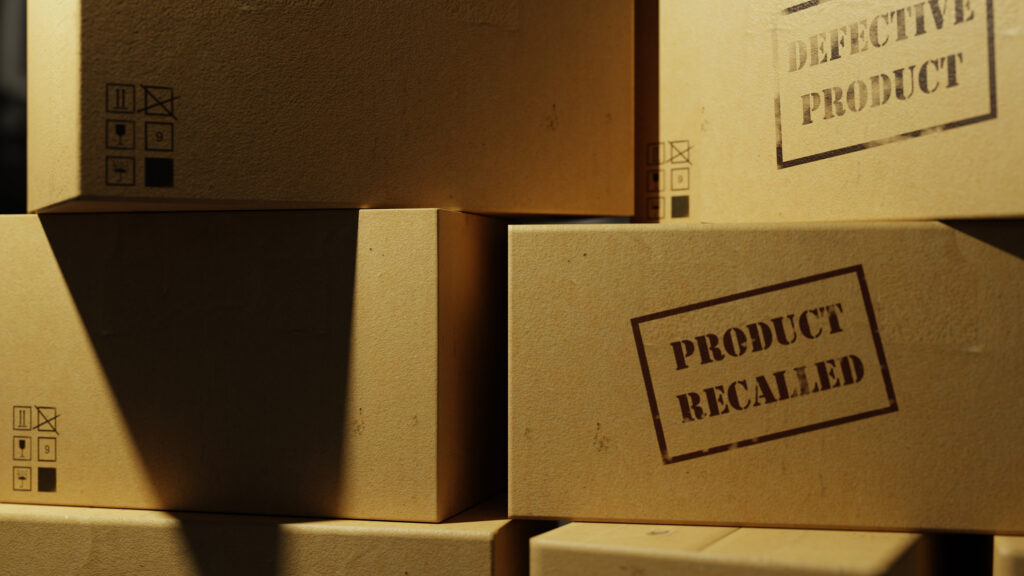ZANTAC (RANITIDINE) RECALL LAWYERS
Bachus & Schanker Wins – Over $1 Billion Recovered
- Zantac Is Linked to Increased Risk of Cancer
- What Is Zantac (Ranitidine)?
- How is Zantac prescribed?
- Why was Zantac (Ranitidine) Recalled?
- What are Cancer-Causing NDMAs in Zantac?
- What to Do If You Were Diagnosed with Cancer After Taking Zantac?
- How Can a Lawyer Help You?
- Other Office Locations across Colorado & Beyond
- Zantac Product Liability Legal Reviews
- Related Product Liability Resources
- You Deserve Fair Compensation
Zantac Is Linked to Increased Risk of Cancer
On April 1st, 2020, the Food and Drug Administration (FDA) has asked the manufacturers of the antacid Zantac to voluntarily recall the medication due to testing which has indicated that the medication Zantac may contain undisclosed high levels of N-Nitrosodimethylamine OR NDMA. NDMA is a cancer-causing chemical that is heavily restricted by the FDA.
In September of 2019, the FDA announced that it would be investigating the possibility of increased cancer risks associated with Zantac. This announcement came after the FDA discovered that many tablets in a sample size of 150 Zantac tablets contained NDMA levels that ranged from 3,000 to 26,000 times the FDA regulated daily limit of NDMA.
The FDA currently lists 96 nanograms as the acceptable limit of NDMA consumption on a daily basis. The average amount of NDMA found in some of the tested Zantac tablets was 2.5 million nanograms.
If you or a loved one has been diagnosed with cancer following the usage of Zantac, you may be entitled to compensation. Please continue reading to find out more about Zantac and why the FDA has requested that the medication be recalled.
What Is Zantac (Ranitidine)?
Zantac (or ranitidine) is a drug produced by Sanofi and Boerhringer Ingelheim. The drug was marketed as a histamine-2 blocker with antacid properties. It was used to both treat and prevent conditions such as stomach ulcers, ulcers in the intestines, as well as treat symptoms such as acid reflux, heartburn and excessive stomach acid production.
People who were prescribed Zantac included people with conditions like Zollinger-Ellison syndrome, which causes excessive stomach acid, as well as gastroesophageal reflux disease and other conditions related to the production of stomach acid and problems such as reflux and heartburn.
The drug was released in 1981 and since then has become very popular. As of 2019, it was the 50th most prescribed medication in the United States. Prior to the recall, Zantac was available both as a prescription and over-the-counter medicine.
How is Zantac prescribed?
Zantac is typically prescribed in the 150-milligram form, with the recommended dose being twice daily or a dose of 300 milligrams per day. The average length of a Zantac prescription may vary depending on the person and what condition the Zantac was treating.
To illustrate how much Zantac the average person might consume, consider that someone who was prescribed Zantac for a peptic ulcer will likely be prescribed 300 milligrams of Zantac per day for 4 to 8 weeks. This means that over the course of a minimum 4-week prescription, the person taking Zantac would have consumed 5 million nanograms of NDMA per day or 150 million nanograms of NDMA over 30 days. In comparison, according to the FDA guidelines, the maximum amount of NDMA for 30 days would be 3000 nanograms.
Why was Zantac (Ranitidine) Recalled?
According to the official FDA statement, the presence of high levels of NDMA in some Zantac tablets may be associated with impurities due to improper storage, and investigations are continuing in order to help protect the public from this ongoing problem.When the FDA made its initial findings public in September of 2019, they did not initially request a recall of Zantac. However, many retailers—such as CVS, Walmart and Walgreens—chose to voluntarily suspend the sales of Zantac until further information was released. In some countries, sales of Zantac or generic ranitidine hcl equivalents were also suspended pending further investigation.
The FDA continued to investigate the potential for high amounts of NDMA in Zantac through 2020. On April 1st, 2020, the FDA announced they submitted a voluntarily recall request of Zantac from the manufacturers of the medication.
What are Cancer-Causing NDMAs in Zantac?
NDMA is considered a potential cancer-causing agent and is classified by the FDA as a carcinogenic contaminant, which means that it may increase the risk of cancer. NDMA may cause an increased risk for numerous cancers, including a higher risk for bladder cancer, liver cancer, and the development of tumors on the kidneys, lungs and liver. NDMA exposure can also increase the risk for serious symptoms such as enlarged liver, reduced kidney function, reduced lung function, reduced liver function, as well as jaundice, vomiting, cramps, fever, dizziness and nausea.Because NDMAs may increase the risk for cancer, the FDA has strict regulations regarding how much NDMA medications or anything intended for human consumption can contain.
What to Do If You Were Diagnosed with Cancer After Taking Zantac?
The FDA has advised that anyone taking over the counter Zantac in any form, including liquid or capsule, should stop taking it immediately. They should dispose of the medication properly, such as in a drug take-back center or by properly disposing of it in the household trash.The FDA has advised that anyone who has received a prescription for Zantac, as opposed to an over the counter version, should contact their health care provider as soon as possible. The health care provider may want to explore alternative treatment options, reduce prescription strength, or take other actions based on the patient’s needs. People who are taking prescription Zantac should not quit the medication immediately—contact your healthcare provider for further instructions.
How Can a Lawyer Help You?
The popular antacid drug Zantac has been linked with an increased risk for certain cancers. If you or a loved one has been diagnosed with cancer following using Zantac, you may be eligible for compensation due to your diagnosis.If you or a loved one has received a cancer diagnosis and you believe it is related to your Zantac prescription or use, you are not alone. Please contact us today. Our experienced Colorado product liability lawyers at Bachus & Schanker will review your case for FREE. We will fight to ensure that you or your loved ones received the compensation that you deserve.
Free Consultation – Colorado Zantac Recall Lawyers
Your case begins with a free consultation with our legal team. Short deadlines may apply, so don’t wait to contact us about your potential case. We are conveniently located at 5 Colorado locations near you in Denver, Fort Collins, Colorado Springs, Aurora, and Englewood. Our lawyers are ready to serve you and fight for the compensation you deserve.
Other Office Locations across Colorado & Beyond
Serving Clients Nationwide
Zantac Product Liability Legal Reviews
Related Product Liability Resources
You Deserve Fair Compensation
Don’t let the insurance companies intimidate you into accepting less than you deserve. We’re ready to fight for you.

Written and Legally Reviewed By: Kyle Bachus
4.6 ★★★★★ 1,461 Google Reviews
Kyle is a member of the Colorado and Florida Bar associations and has served on the Board of Directors of the Colorado Trial Lawyers Association for more than twenty years in total. Over the years, Kyle has achieved justice for many clients. He has served on numerous committees and repeatedly won recognition from his peers at both the state and national level. He is proud of the role he has played in the passage of state and national legislation to protect consumers and is a frequent speaker and guest lecturer.









